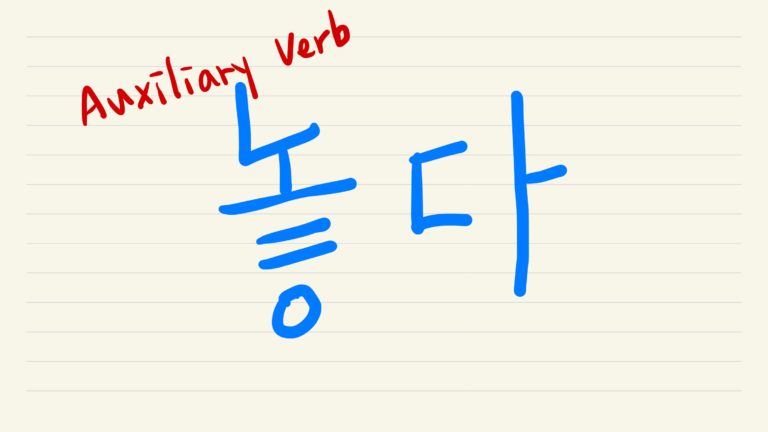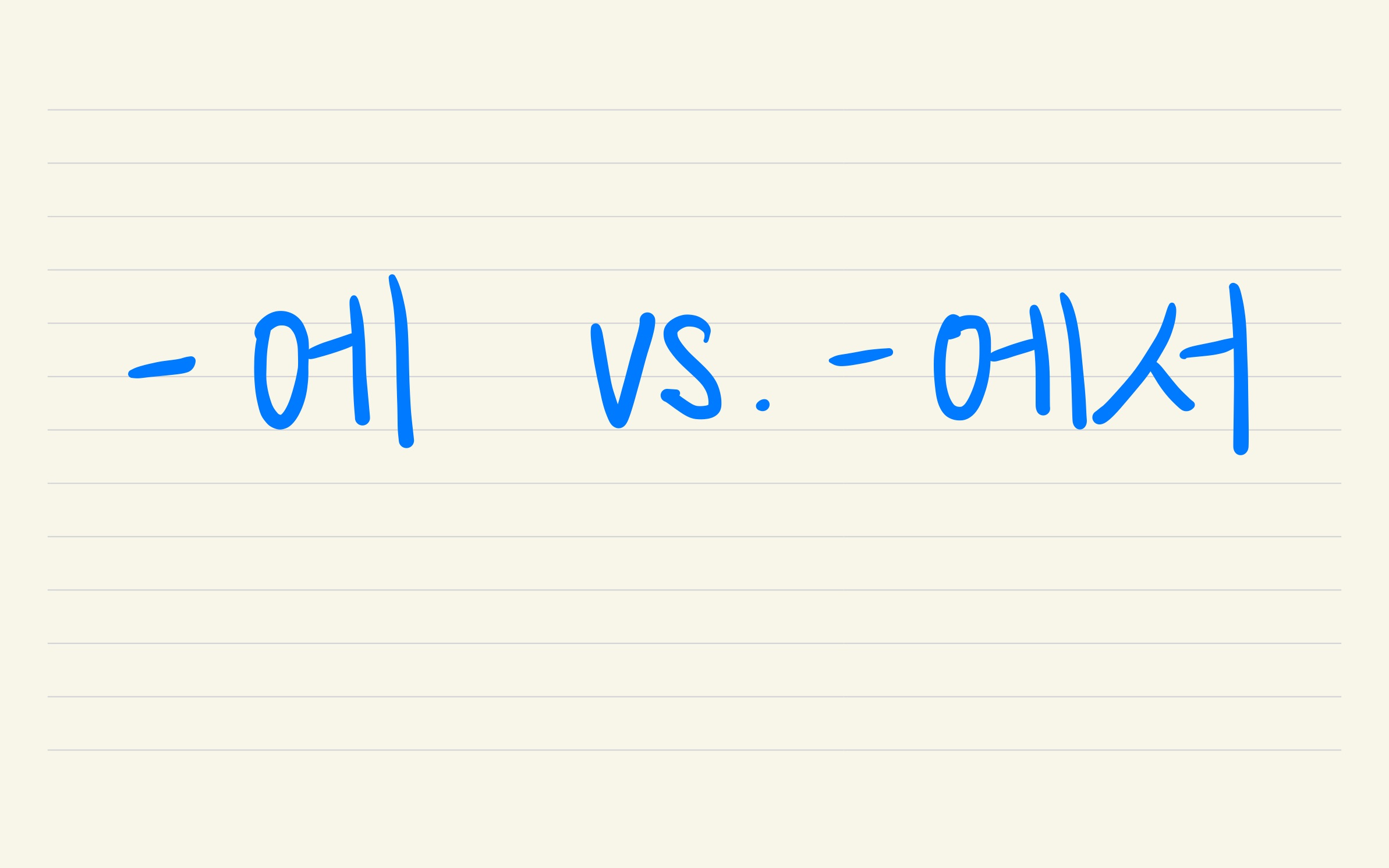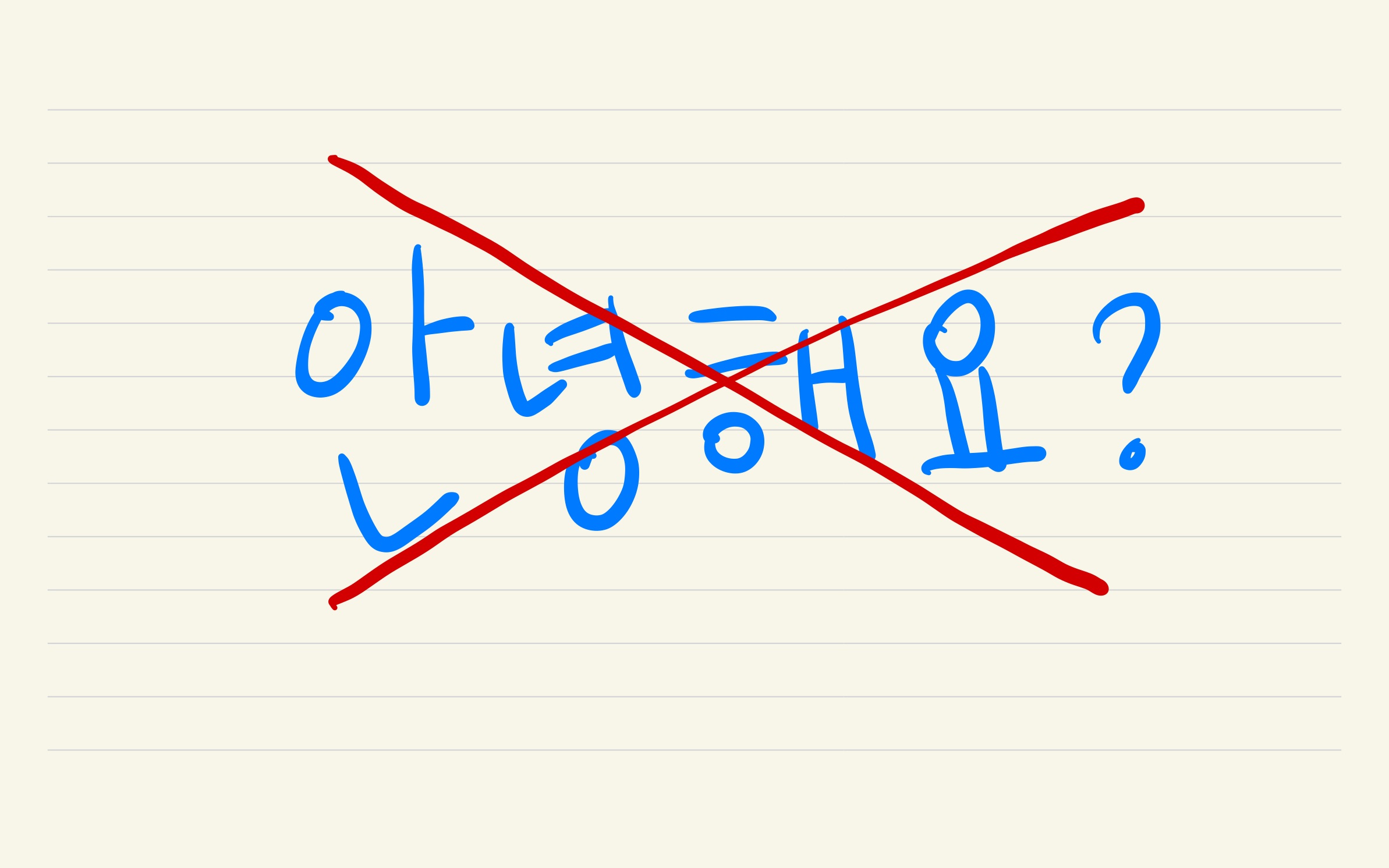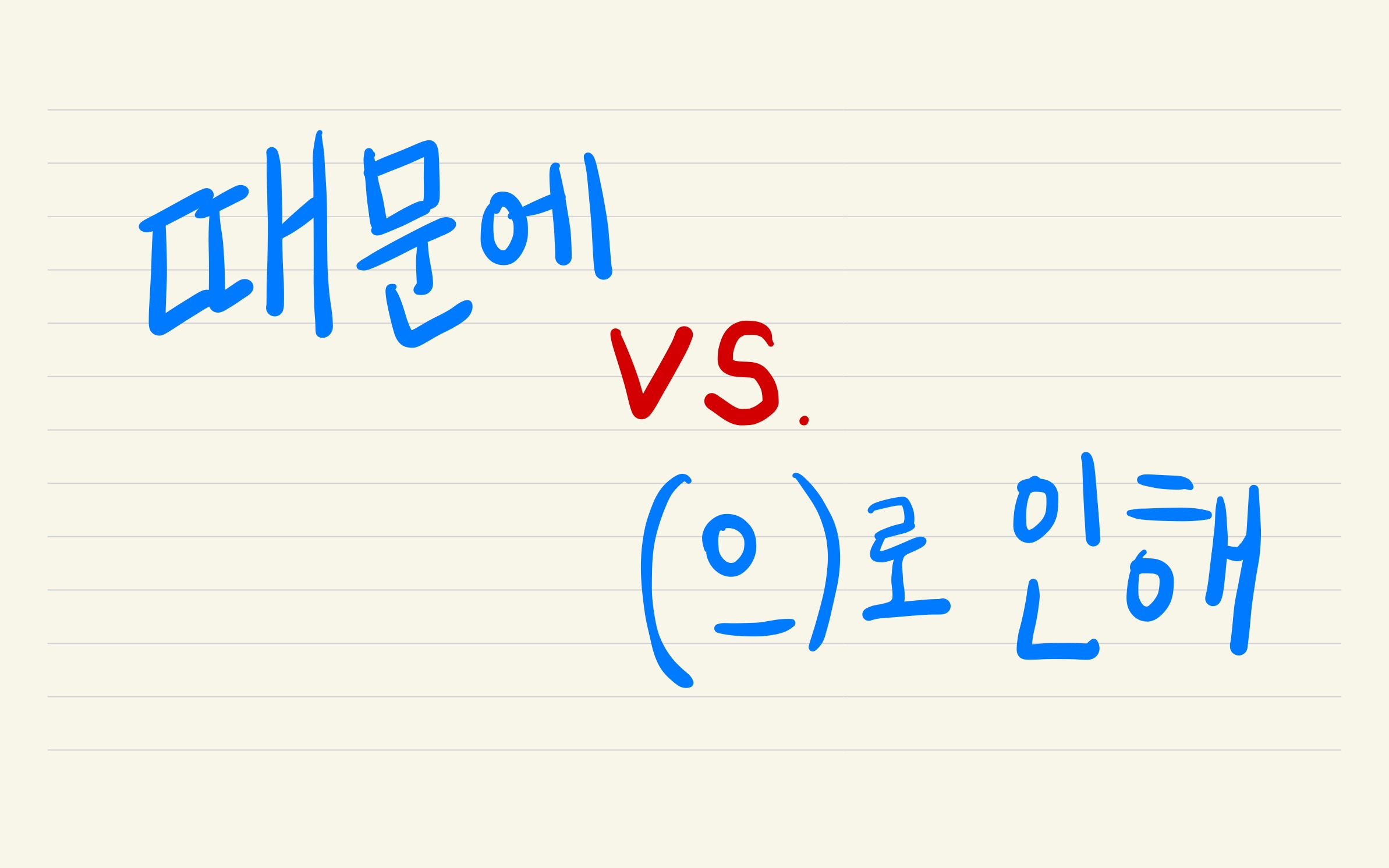The verb “놓다” in Korean has various meanings and usages. However, in this article, we will discuss its role as an auxiliary verb. An auxiliary verb is a verb that connects to the main verb, slightly modifying or adding to its meaning. When used as an auxiliary verb, it takes the form “-아/-어/-해 놓다”.
Let’s look at the sentence “창문을 열어 놓다” (Leave the window open). There is a clear difference between saying “창문을 열다” (Open the window) and “창문을 열어 놓다”. Of course, depending on the sentence, the presence or absence of the auxiliary verb “놓다” may not make a significant difference.
Anyway, in the sentence “창문을 열어 놓다”, we can emphasize the meaning of keeping the window open by adding ‘놓다’. In other words, it means to open the window and leave it open for a while, unless otherwise stated.
The dictionary explains the auxiliary verb “놓다” as follows:
“It is attached to the main verb to indicate that a certain action is completed and the state remains unchanged. It is used to emphasize that the result of the action is being sustained.”
Let’s look more closely through examples. We’ll focus on the difference in the message conveyed when ‘놓다’ is added to sentences and when it is not.
- “밥을 지어 놓았다.” (I have cooked rice) vs. “밥을 지었다.” (I cooked rice)
- In the case with ‘놓다’, it emphasizes the state of having rice in the kitchen now and naturally brings up the expectation that we will eat this rice later. However, in the case without ‘놓다’, it only focuses on the action of cooking rice.
- “돈을 모아 놓았다.” (I have saved money) vs. “돈을 모았다.” (I saved money)
- In the case with ‘놓다’, it makes you think of the money saved in the bank account. It sounds like you have saved money in preparation for a situation where you will need money in the future. However, in the case without ‘놓다’, the focus is only on the act of saving money.
- “화장실에 불을 켜 놓았다.” (I have left the light on in the bathroom.) vs. “화장실에 불을 켰다.” (I turned on the light in the bathroom.)
- In the case without ‘놓다’, it sounds like you are about to use the bathroom. But what if ‘놓다’ is there? I’m in the living room right now, but it implies the nuance that I forgot to turn off the light in the bathroom or deliberately didn’t turn it off.
- “휴대폰을 꺼 놓았다.” (I have kept my phone turned off) vs. “휴대폰을 껐다.” (I turned off my phone)
- In the case without ‘놓다’, it simply describes the action of turning off the power of an electronic device. But if ‘놓다’ is there, it hints at the intention to keep the phone off because you don’t want to contact anyone.
- “레스토랑을 예약해 놓았다.” (I have made a reservation at the restaurant) vs. “레스토랑을 예약했다.” (I made a reservation at the restaurant)
- In the case without ‘놓다’, it is a simple past action. In the case with ‘놓다’, it emphasizes that the past action (reservation) continues to the present, i.e., the state of being reserved.
- “욕조에 물을 받아 놓았다.” (I have filled the bathtub with water) vs. “욕조에 물을 받았다.” (I filled the bathtub with water)
- In the case without ‘놓다’, it focuses solely on the act of filling the bathtub with water. In the case with ‘놓다’, it emphasizes the state of being able to dive oneself into the bathtub at any time.
The keyword of the auxiliary verb ‘놓다’ is the result of the action, the maintenance of the state. And because of ‘maintenance‘, it is deeply related to or influenced by the content of the following words, especially when combined with connective endings such as ‘-고’, ‘-(으)면’, ‘-게’.
- 헤어진 여자친구에게 전화를 걸어 놓고 아무 말을 할 수 없었다. (I called my ex-girlfriend and couldn’t say anything.)
- 부하직원이 중요한 프로젝트를 전부 망쳐 놓고 도망을 갔다. (An employee ruined the entire project and ran away.)
- 여행을 갈 때는 비행기와 숙소, 투어 등을 전부 미리 예약해 놓으면 마음이 편해. (When you go on a trip, it’s comfortable to have everything, such as flights, accommodations, and tours, reserved in advance.)
- 입을 옷을 준비해 놓게 이번 파티의 드레스코드를 좀 알려줄래? (Can you tell me the dress code for this party so I can prepare clothes to wear?)
The ‘놓다’ grammar (as you’ve already seen in the example sentences above) can be seen as having a similar meaning to the present perfect tense in English. The present perfect tense in English also indicates that an action or state that began in the past continues to the present.
For example, “I have finished the homework” has a similar meaning to “숙제를 다 해 놓았다”. Both sentences indicate that the past action (doing homework) has led to the current result (completed homework). However, since each language has different grammar and expression methods, they cannot be completely corresponded. But such comparisons can help understand the usage of the auxiliary verb ‘놓다’.
To add an important fact, Koreans actually use ‘놔’ which is short for ‘놓아’, much more when they speak. As you know, in Korean language, words or expressions are often shortened. These abbreviated expressions are commonly used in conversation, but they are often not used in official documents or writings that perform the function of standard language. This does not mean that ‘놔’ is a wrong expression. ‘놔’ is a naturally accepted expression among Korean speakers. It may be more natural to use ‘놔’ in everyday conversation. However, it would be good to remember that it is desirable to use ‘놓아’ in situations where standard language should be used.
And one more thing! There is another auxiliary verb very similar to ‘놓다’, which is ‘두다’. There is no need to explain in detail about the auxiliary verb ‘두다’, because the two words can be interchangeable in most cases. However, if I have to tell you the slight differences,
First, ‘두다’ has a stronger sense of purpose to prepare for future events that might happen compared to ‘놓다’.
Second, ‘놓다’ can be combined with verbs of any meaning, whether positive or negative, whereas ‘두다’ cannot be combined with verbs of negative meaning.




[…] 그런데 이 찜하다와 비슷하게 쓰이는 표현이 또 있습니다. 그건 바로, 침 발라 놓다(Have You Picked Up the Common Ground Between ‘놓다’ and English Present Perfect?)입니다. […]